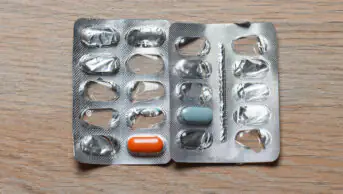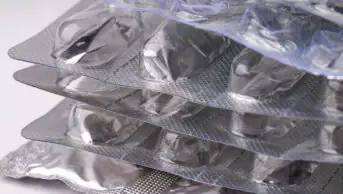
Shutterstock.com
GPs are set to vote on whether pharmacists should be “responsible for identifying appropriate and available alternatives” when medicines are in short supply.
The proposals will be made by Shropshire and Telford Local Medical Committee (LMC) at the English LMC Conference in London on 22 November 2019.
Pharmacists are currently only able to respond to a medicine shortage after a serious shortage protocol (SSP) has been issued by the government.
SSPs enable pharmacists to dispense a reduced quantity, a therapeutic equivalent, a generic equivalent or an alternative dosage form of a medicine in short supply.
However, when the protocols were first announced, the British Medical Association (BMA) said allowing pharmacists to dispense differently from the prescription was not appropriate.
The LMC’s motion calls on the BMA’s GP committee to “[explore] changes, including legislation, to make pharmacists responsible for identifying appropriate and available alternatives” to medicines in short supply.
The motion adds that the GP committee can mitigate the impact of shortages by “urgently entering into discussions with relevant bodies to enable pharmacists, when medications are not available, to dispense an equivalent preparation or dosing regime without the need to return the prescription to the GP for amendment”.
If the LPC’s motion passes it will become GP committee policy, meaning leading GPs at the BMA will have to argue in favour of allowing pharmacists to dispense equivalent doses of medicine when the prescribed dose is unavailable.
Andrew Green, GP committee clinical and prescribing lead at the BMA, said in January 2019 that although SSPs will “minimise disruption to patients, GPs and pharmacists in the event of a serious shortage”, the BMA “[does] not believe that it is appropriate for pharmacists to change patients from one drug to a different one without authorisation from an independent prescriber”.
Commenting on why the LMC proposed the motion, Simon Hodson, chair of Shropshire and Telford LMC, told The Pharmaceutical Journal: “The hormone replacement therapy (HRT) issues were one of the triggers, but there are more and more other examples of supply issues,” he said.
“It causes disruption and inconvenience for patients, and a significant workload for GPs in having to respond to our community pharmacy colleagues who are identifying an inability to fulfil prescriptions.”
He added that GPs often “need to approach the pharmacist to see what they do have in stock that might be a reasonable alternative, as well as seeking advice from prescribing advisors and the national email alerts” during a medicine shortage.
The government issued its first SSP on 3 October 2019, allowing pharmacists to supply alternative strengths or pharmaceutical forms of fluoxetine without consulting a GP.
On the same day, the government announced restrictions on exporting of 19 HRT products to tackle shortages.


